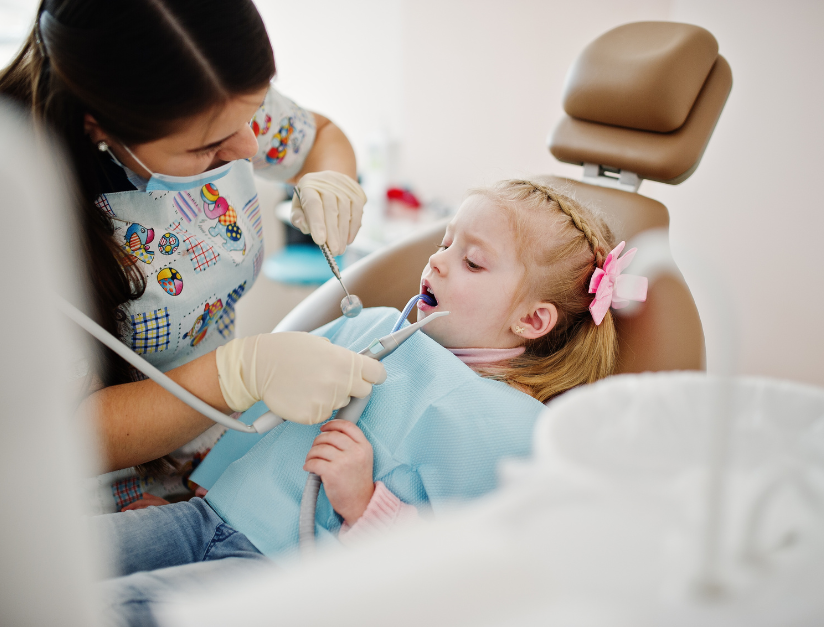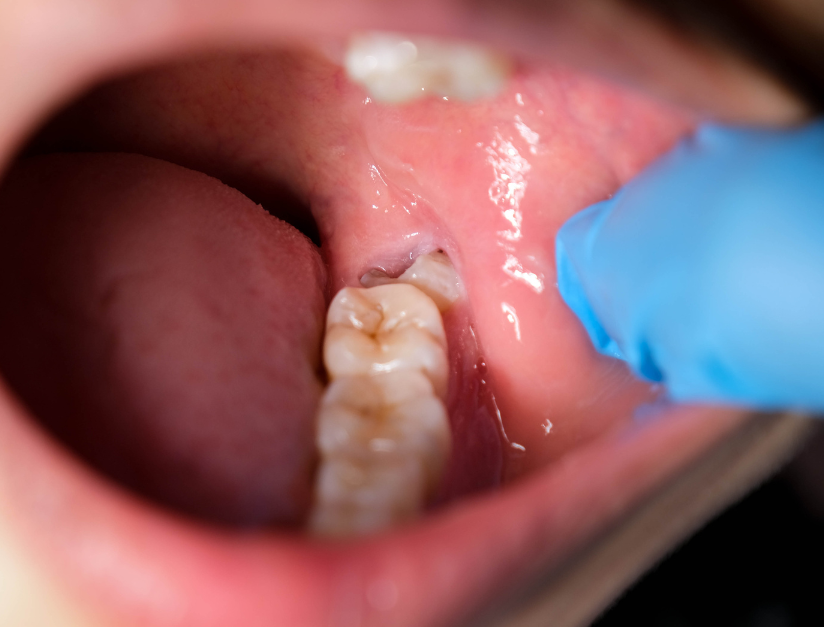Pregnancy is a beautiful journey, but it also brings unexpected changes to a woman’s body—including oral health. Many mothers-to-be are surprised to learn that hormonal changes during pregnancy can affect teeth and gums, making them more vulnerable to problems like gum disease, cavities, and sensitivity.
At Royal Oral & Dental Clinic, Dr. Deepesh Gupta emphasizes: “A mother’s oral health plays a vital role in her overall well-being and even in her baby’s health.” This guide explains how pregnancy impacts dental health and what mothers should know to stay healthy.
Why Oral Health Changes During Pregnancy
During pregnancy, the body experiences:
- Hormonal shifts – Increased levels of progesterone and estrogen affect gum tissues.
- Morning sickness & acidity – Repeated vomiting erodes tooth enamel.
- Dietary changes – Cravings for sweets or frequent snacking increase cavity risk.
- Increased blood flow – Gums may become more swollen and prone to bleeding.
All of these factors combined make dental care during pregnancy more important than ever.
Common Dental Issues During Pregnancy
1. Pregnancy Gingivitis
- Up to 70% of pregnant women experience swollen, red, or bleeding gums.
- If untreated, it can progress to periodontal disease.
2. Tooth Decay & Cavities
- Sugar cravings and acid exposure increase the risk of cavities.
- Enamel erosion from morning sickness weakens teeth.
3. Pregnancy Tumors
- Small, non-cancerous growths on the gums may develop due to hormonal changes.
- They usually disappear after delivery but may need monitoring.
4. Dry Mouth
- Hormonal changes can reduce saliva, causing discomfort and increasing cavity risk.

How Dental Health Affects the Baby
Poor oral health during pregnancy can have consequences beyond the mother:
- Untreated gum disease is linked to premature birth and low birth weight.
- Oral infections can spread bacteria, affecting overall health.
- Nutritional absorption may be reduced if teeth and gums are not healthy.
👉 Caring for your teeth means caring for your baby too.
Safe Dental Care During Pregnancy
✅ Dental Treatments That Are Safe
- Routine cleanings and checkups – Highly recommended.
- Fillings and extractions – Safe during the second trimester.
- X-rays – Avoided unless absolutely necessary (with shielding).
❌ What to Avoid
- Elective cosmetic procedures (like whitening) should be postponed.
- Unnecessary X-rays or major surgeries unless urgent.
What to Eat for Healthy Teeth During Pregnancy
Nutrition plays a big role in dental health. Choose foods rich in:
- Calcium (milk, yogurt, leafy greens) – strengthens teeth and bones.
- Vitamin D (sunlight, fortified milk) – helps absorb calcium.
- Protein (lentils, eggs, fish) – supports tissue repair.
- Fruits & vegetables – provide vitamins and fiber for strong gums.
Avoid excessive sugar, sodas, and acidic foods, as they damage enamel.
Oral Care Tips for Expectant Mothers
- Brush twice daily with a soft-bristle toothbrush.
- Floss daily to remove plaque between teeth.
- Rinse after morning sickness with a baking soda solution to neutralize acid.
- Drink plenty of water to combat dry mouth.
- Visit your dentist at least once during pregnancy for preventive care.
FAQs
Q1. Why does pregnancy affect my teeth and gums?
Pregnancy hormones like progesterone and estrogen increase blood flow to the gums, making them more sensitive and prone to swelling, bleeding, and infection.
Q2. Is bleeding gums during pregnancy normal?
Yes, mild gum bleeding (pregnancy gingivitis) is common. However, if bleeding is frequent or painful, consult a dentist to rule out gum disease.
Q3. Can I get dental treatment during pregnancy?
Yes. Most routine treatments, including cleanings and fillings, are safe. The second trimester is usually the best time for dental procedures. Always inform your dentist about your pregnancy.
Q4. Are dental X-rays safe while pregnant?
Dental X-rays are generally avoided during pregnancy unless absolutely necessary. If required, modern X-rays use very low radiation and protective shields for safety.
Q5. What foods should I eat to keep my teeth healthy during pregnancy?
Calcium-rich foods (milk, cheese, yogurt), leafy greens, nuts, and vitamin D sources help strengthen teeth and bones. Avoid excessive sugary snacks and drinks.
Q6. Can poor oral health affect my baby?
Yes. Studies suggest untreated gum disease may increase the risk of preterm birth or low birth weight. Keeping your mouth healthy supports your baby’s health too.
Q7. Should I continue using fluoride toothpaste during pregnancy?
Absolutely. Fluoride helps prevent cavities and is safe to use while pregnant. Just avoid swallowing toothpaste.
Q8. How often should I see the dentist while pregnant?
A dental checkup once every 6 months is ideal. If you have gum problems or tooth pain, don’t delay a visit — early care prevents complications.
Conclusion
Pregnancy is a time of joy, but it also requires extra care for your oral health. By understanding the changes in your teeth and gums—and taking preventive steps—you can ensure a healthier pregnancy for both you and your baby.
At Royal Oral & Dental Clinic, Dr. Deepesh Gupta and his team provide gentle, safe, and effective dental care for expectant mothers.
👉 Book your pregnancy-safe dental check-up at Royal Oral & Dental Clinic today and protect your smile along with your baby’s health.
Website = https://drdeepeshgupta.com/
Contact no = +91 90268 02954

